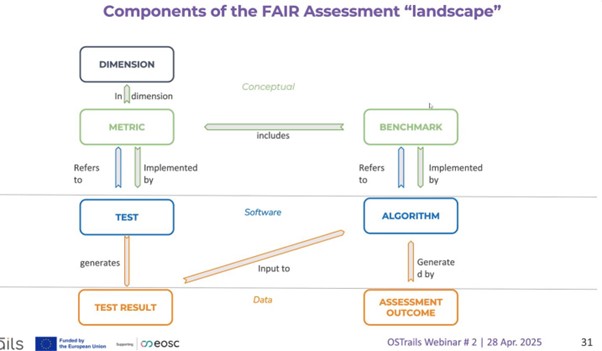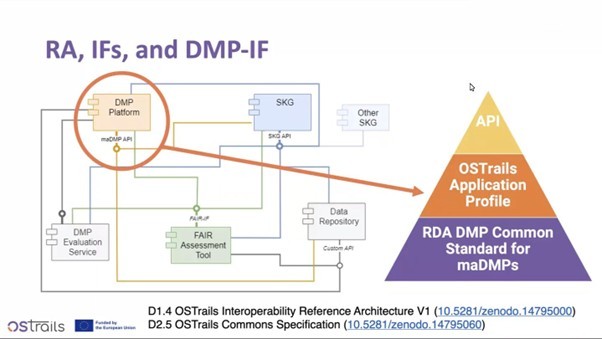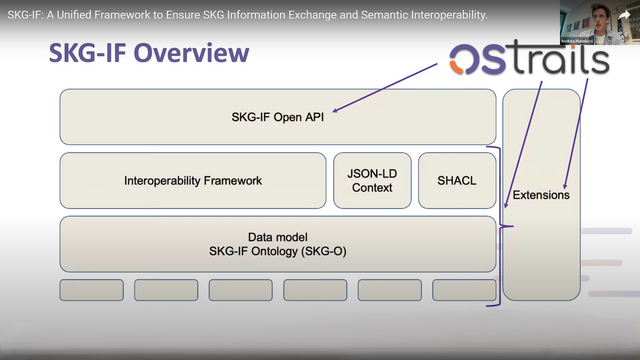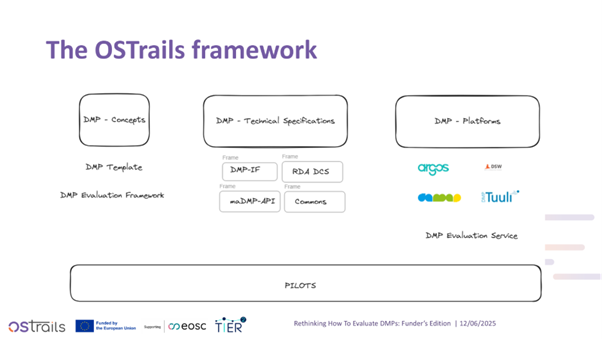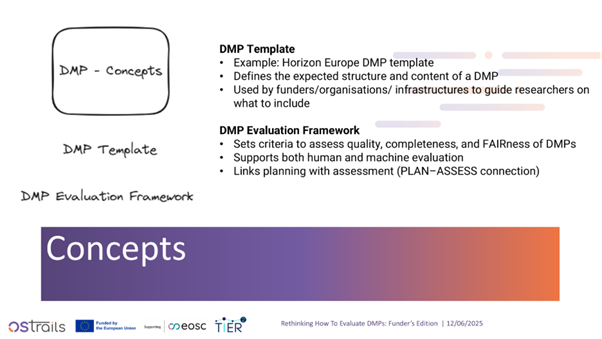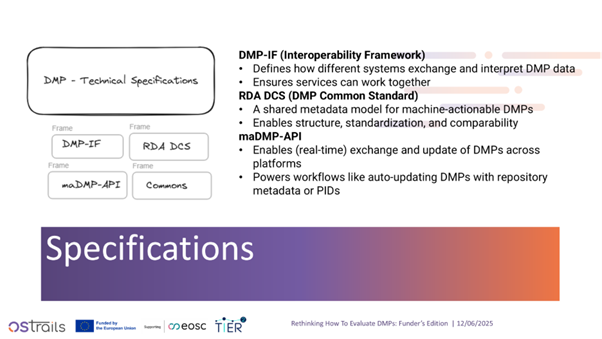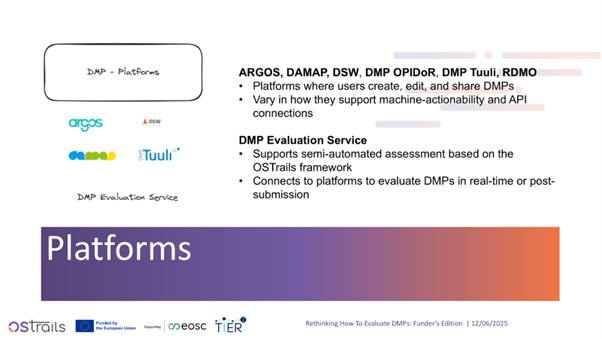OSTrails First Public Webinar: Checked!
On 15 April 2024, OSTrails hosted its first public webinar, bringing together over 100 participants from across the research community. The session introduced the project’s goals, early results, and ways to get involved in shaping how research planning, tracking, and assessment can be improved.
"This firstwebinar was an important milestone for us. After months of work, we were finally able to share early results and open the door for others to get involved."
— Elli Papadopoulou, Athena Research Center / OSTrails Deputy Coordinator
Plan-Track-Assess (PTA) Framework: Addressing the Silos in Research Data Management
Research today relies on many separate systems. The same information is often re-entered in different tools, and outputs are difficult to follow or assess. OSTrails addresses these issues by connecting workflows, reducing duplication, and supporting reuse and visibility of research outputs.
The project builds a unified framework that:
- Assists researchers in reducing repetitive tasks and improving data management.
- Supports institutions in ensuring compliance and facilitating data reuse.
- Enables funders and policymakers to obtain consistent and reliable metrics on FAIR and Open Science practices.
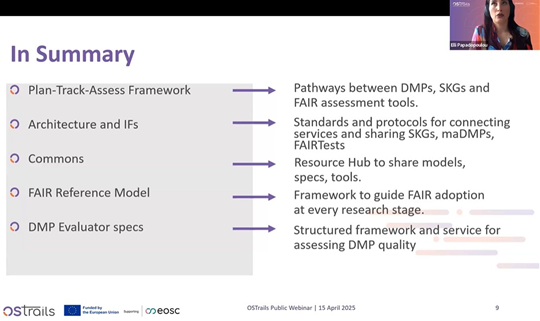
Elli Papadopoulou presenting the OSTrails toolkit.
Two Pilots, One Message: This Works!
Two pilot initiatives were featured during the webinar to show what the PTA Framework looks like when in action for different organisations:
- In the Dutch National Pilot, led by CWTS and SURF, institutions are working with dynamic Data Management Plans (DMPs) embedded in their systems, cutting repetition and improving coordination across teams. The pilot highlights the Netherlands’ diverse and decentralised research data management (RDM) landscape, and the need for machine-actionable (ma)DMP tooling that meets both broad Open Science goals and basic local administrative needs. The pilot focuses on aligning stakeholder interests at national and institutional levels—supporting researchers with domain-specific templates and administrators with integrated workflows that include RDM, privacy, and ethics reviews. It also explores different technical pathways to publish and connect maDMPs with other research outputs, including the use of Research Activity Identifiers (RAiDs) and links to local repositories or Zenodo.
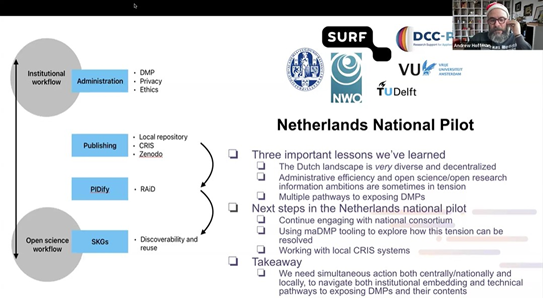
Andrew Hoffman (CWTS) showcasing the Dutch National Pilot.
- In Photon and Neutron Science, researchers at ESRF are combining DMPs, metadata services, and FAIR assessment tools to better describe and evaluate their datasets.
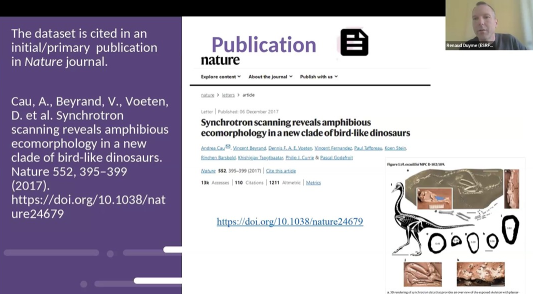
Assessing and sharing datasets from ESFRIs using the PTA Framework, as presented by Renaud Duyme.
Those are only two examples of the twenty-four use cases through which OSTrails is testing and adapting the PTA Framework to streamline and automate processes.
From Design to Adoption: Supporting the People Who Make It Happen
The webinar also launched the OSTrails Mentorship Programme, which provides support for those already working on improving research workflows by helping them apply OSTrails tools in practice: IT staff, research support professionals, and policy officers.
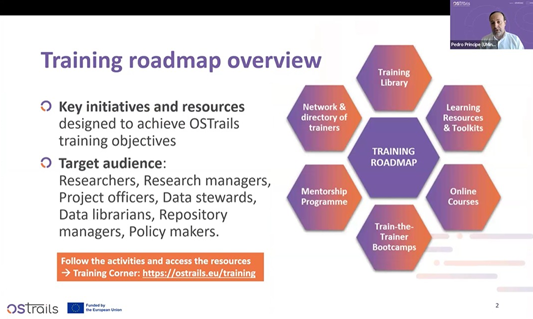
Insights into the OSTrails training roadmap by Pedro Principe (UMinho).
Community Discussions
The discussion during the webinar showed strong interest in the work OSTrails is doing. Participants highlighted shared challenges like scattered tools, manual processes, and inconsistent planning, and welcomed the focus on making systems work better together. The event opened space for future collaboration and real-world application.
There were also many questions about how to get involved, especially through the OSTrails Mentorship Programme. The team shared resources on training opportunities, the mentorship call for mentees, and other upcoming events. As one participant put it:
“This is a great initiative—thank you for this mentoring programme.”
Check out the full webinar here.

